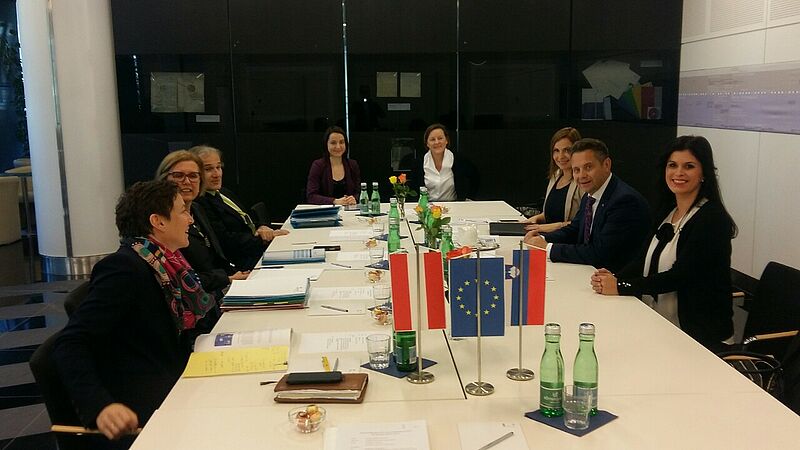Public nature of work of the Court of Audit is secured by:
- a work report each year submitted to the National Assembly;
- issuing audit and post-audit reports, as well as presenting specific stages of audit procedures;
- publishing important opinions on issues within the Court’s powers;
- providing timely and accurate information and notices pertaining to the Court’s fields of work;
- organizing press conferences and issuing press releases;
- announcing events and activities (at national and international level);
- publishing various contents on websites, social media and in different publications.
How can citizens participate in our work?
When defining the Annual programme of work, the Court of Audit considers also the initiatives received from natural persons as well as anonymous initiatives. More about initiatives for audit >
Information, explanations and other data are provided by the President of the Court of Audit, both Deputy Presidents and Supreme State Auditors or, with special authorisation from the President, also by other employees of the Court of Audit.
The Court of Audit ensures the public nature of its work in accordance with the Court of Audit Act, the Rules of Procedure of the Court of Audit, the Media Act and the Public Information Access Act.
President of the Court of Audit, Tomaž Vesel, and President of the Supreme Audit Institution of Austria, Margit Kraker, met in Vienna on 28 November 2018.
The outcome of the talks was an agreement on the joint audit implementation. While this year, close co-operation among the auditors of the two SAIs shall continue. With a view to strengthening the international co-operation and promoting activities involving both SAIs some changes were agreed. Meanwhile, information about the ongoing preparations for the next INTOSAI congress held in Moscow in 2019 was provided.
The heads of the SAIs exchanged experience relating to the current and follow-up audits, monitoring sustainable development goals, developing documents of sectoral analyses, communicating to the public, audit planning and quality assurance.


